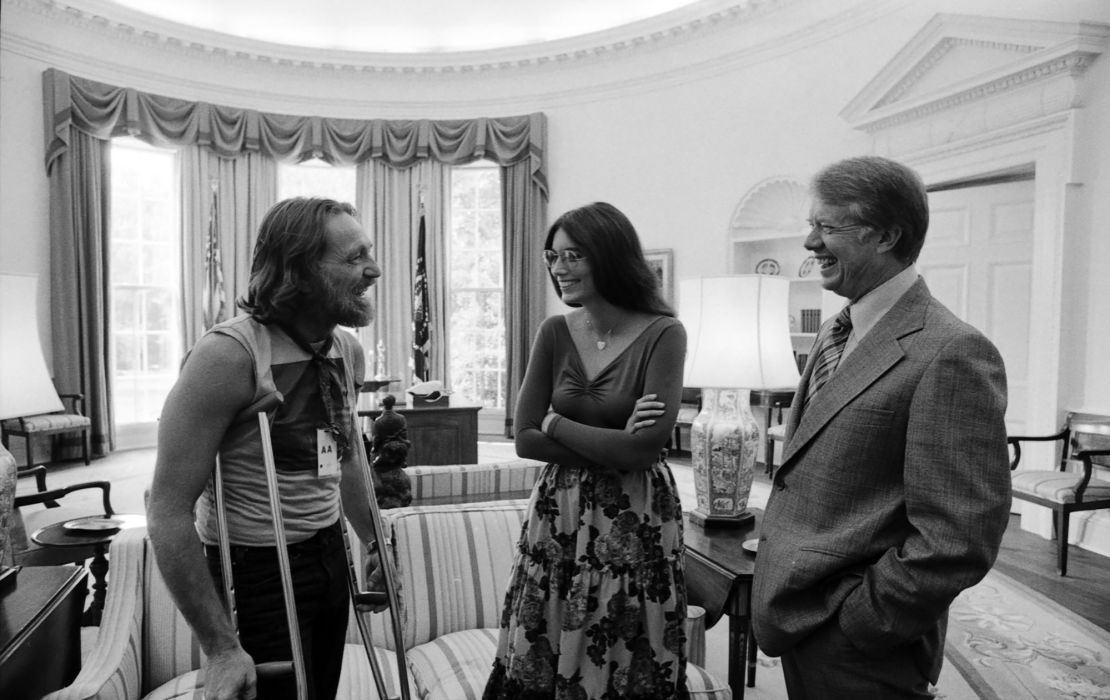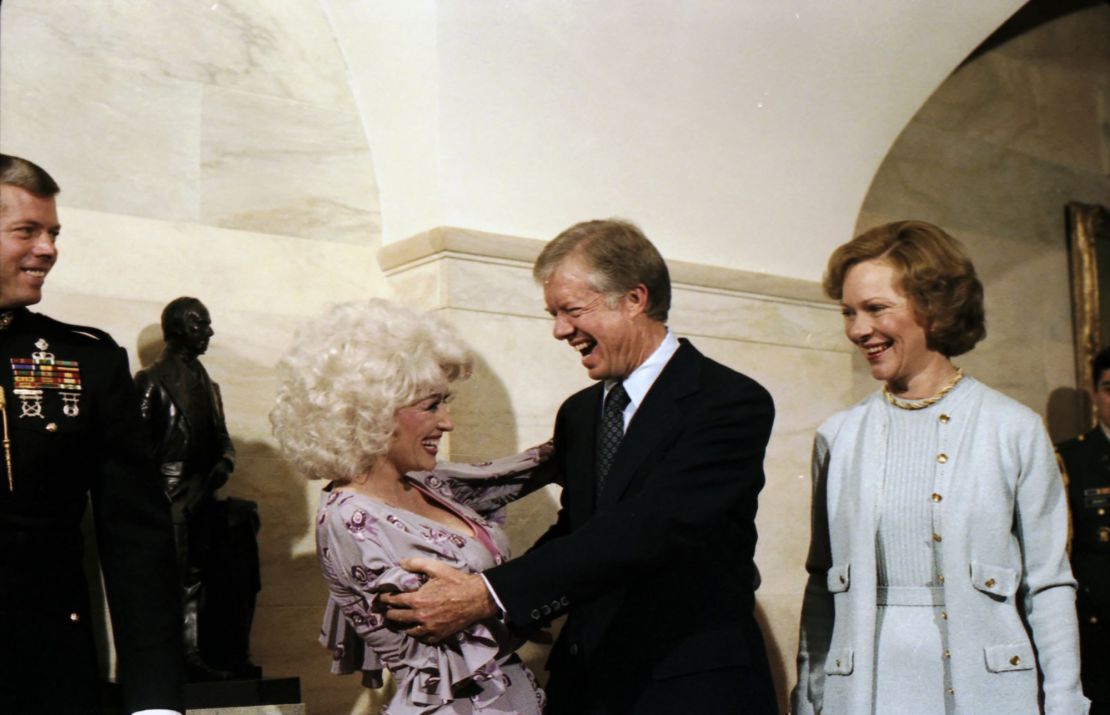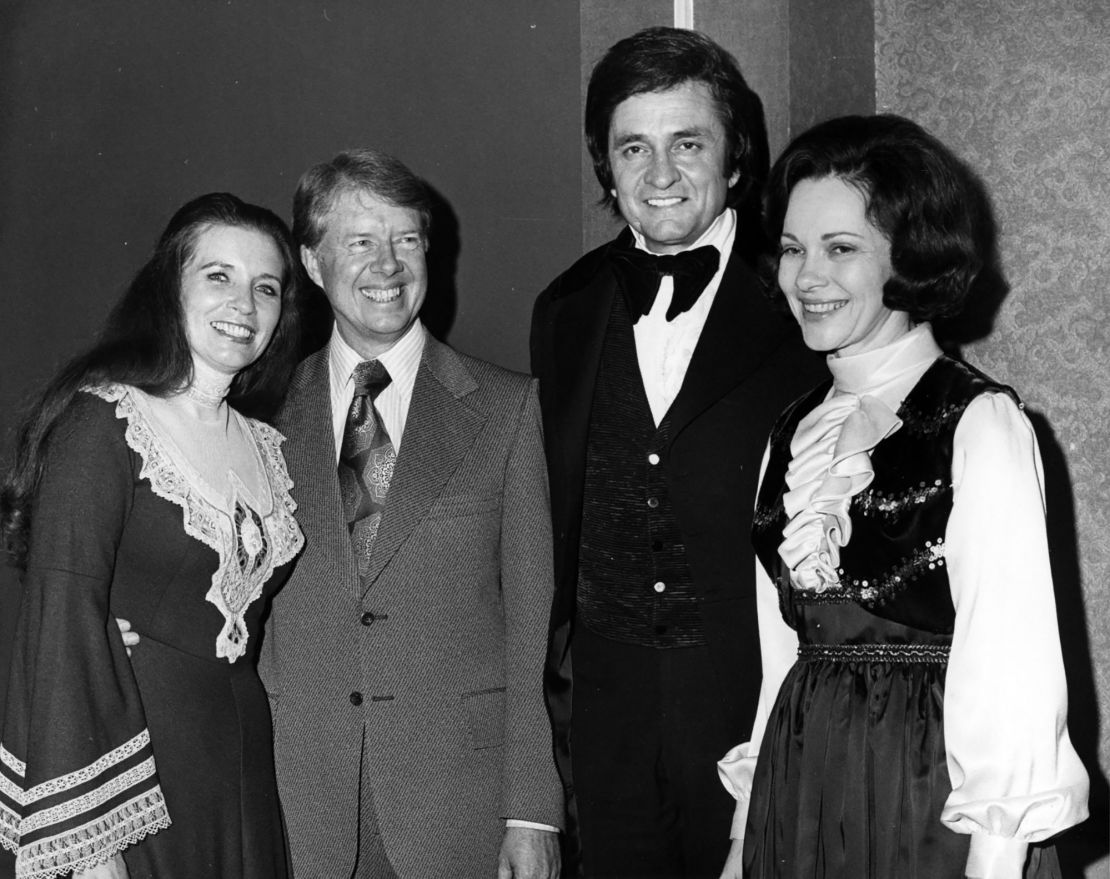Editor’s Note: Julian Zelizer, a CNN political analyst, is a professor of history and public affairs at Princeton University and author of the book, “Burning Down the House: Newt Gingrich, the Fall of a Speaker, and the Rise of the New Republican Party.” Follow him on Twitter @julianzelizer. The views expressed in this commentary are his own. Watch CNN Films’ “Jimmy Carter: Rock & Roll President” Sunday, January 3 at 9 p.m. ET. View more opinion at CNN.
While former President Jimmy Carter is often remembered as a strait-laced figure, he embodied countercultural cool in 1976, when he was the Democratic presidential nominee. “Jimmy Carter: Rock and Roll President,” an engaging documentary that airs on CNN on January 3, takes us back to when this largely unknown governor from Georgia – mocked as “Jimmy Who?” – ran for the highest office in the land and defeated incumbent Gerald Ford.

Throughout his political journey, some of the hippest musicians of the time kept flocking to support him.
Rockers and edgy country singer-songwriters like Bob Dylan and Willie Nelson have always been among some of his biggest fans. From the moment that Carter announced his presidential run, the Allman Brothers, among the most legendary bands from the era, played benefit concerts to raise money for his campaign. As U2’s Bono reminisced during a speech featured in the documentary, “He campaigned with the Allman Brothers. You got the feeling that if his hair was a little longer, he’d be in the Allman Brothers.”
When Carter first met Dylan, the meeting made the music icon feel uneasy, since he was as anti-establishment as they came, but Carter put “my mind at ease by not talking down to me and showing me that he had sincere appreciation for the songs that I had written.” Most important, Dylan realized then that Carter was a different kind of politician than most.

Why would the rock-and-roll set flock to a man who, as president, is remembered today as being a micro-managing, straight-arrow engineer who failed to inspire or understand leadership?
The reason is that in his prime, Jimmy Carter was cool. He championed a kind of political populism that was extremely attractive to Americans disillusioned with Washington in the wake of Vietnam and Watergate. Sick and tired of elected officials who betrayed them, they found a refreshing change in Carter, a former peanut farmer who was seen as an anti-establishment outsider. As Bishop Michael Curry recalls in the documentary, “We were coming out of the Watergate era and looking …to be a country of integrity again.”
The Imperial Presidency, as the historian Arthur Schlesinger Jr. famously described in his 1973 book of the same name, applied to those modern presidents who had expanded their executive powers beyond what was outlined in the Constitution. As a result, these presidents – many of whom showed a willingness to move the nation in dangerous directions – had become disconnected from voters.

Lyndon Johnson, younger Democrats complained, brought us deeper into the quagmire of Vietnam; Richard Nixon abused his power so that he could maintain it. The Allman Brothers’ Chuck Leavell remembers thinking in the 1976 election, “Isn’t it time for someone with great integrity and dignity to take his office?”
In contrast to President Donald Trump’s populism, which has revolved around racial resentment, Twitter tirades and rally rhetoric attacking people and institutions that didn’t support him, Carter hoped to bring the nation a stripped-down presidency, defined less by pomp and circumstance and more by tackling the difficult problems facing the nation.
When Paul Simon sang “American Tune” at the inauguration in 1977, hitting the words, “I’m all right, I’m just weary to my bones,” he seemed to speak for many disaffected people who didn’t believe that Carter could be anything better than Richard Nixon. When Aretha Franklin belted out “God Bless America” she tapped into the hope, buried deep in many Americans at the time, that this country could still reach its promise. Carter understood all of that and was determined to give them hope again.
Though Carter’s presidency has often been disparaged, he did deliver in many ways. As Jonathan Alter recounts in his new book, “His Very Best: Jimmy Carter, a Life,” President Carter was notable in that he was willing to tackle difficult policy challenges, from the environment and energy to peace in the Middle East, even if they were not politically smart issues to take on. He constantly burned bridges with his own coalition to take on issues.
His presidency was also filled with symbolic gestures meant to show that a president could be sensitive to the limits of his own power. During his inauguration, Carter, along with his wife and daughter, stepped out of the limo and walked the streets as an elated crowd looked on. He did away with the “Hail to the Chief” anthem before public entrances and spoke on television wearing a cardigan sweater.
From the start, he didn’t seek to put himself on a pedestal above those he was meant to lead. And this meant something at the time. For a people desperate for a new direction, it offered hope that politics could be different. He made the presidency so engaging that even bands like Crosby, Stills and Nash would show up at the White House just to have a chance to meet him, as the film recounts.

Of course, in the end the presidency didn’t work out as well as he had hoped. Carter, who was overwhelmed by the Iran Hostage Crisis and a flagging economy, ended up losing reelection. He backtracked on some of his populism, such as rejecting bolder proposals to use public spending to stimulate the economy or backing away from national health insurance (which caused an immense rift with liberal stalwart Senator Ted Kennedy), and gradually came to be seen as more “establishment.”
But it’s worth looking back on those original years – when rock and rollers, as well as country music mavericks – saw something fresh and inspiring in Carter’s political populism. He was one of the rare leaders who tried to make himself a little less important to benefit the overall health of our democracy. In recent years, the nation has been sold a brand of populism wielded by a deeply divisive president who abused his executive powers and did little to address the needs of average Americans.
After his presidency ended, Carter returned to the spirit that animated him in 1976. Rather than spending his time giving high-paid speeches or living in seclusion, Carter created the Carter Center, devoted to diplomatic initiatives, eradicating disease and promoting democracy. He has worked for Habitat for Humanity, building houses for those without economic means.
“There has not been a president … who has done more since they left office … just the humanitarians that they have been to us as a nation and to the world,” says country singer Trisha Yearwood, who along with her husband Garth Brooks has worked with the Carters on Habitat.
In other words, Carter has used his position as a platform for promoting social justice, defining a post-presidency that has been radically different from that of those who came before him.
Jimmy Carter showed us that populism isn’t always a bad thing if it comes with integrity and a genuine concern for the nation’s citizenry. We need that more than ever today after four years of chaos, instability and dysfunction





